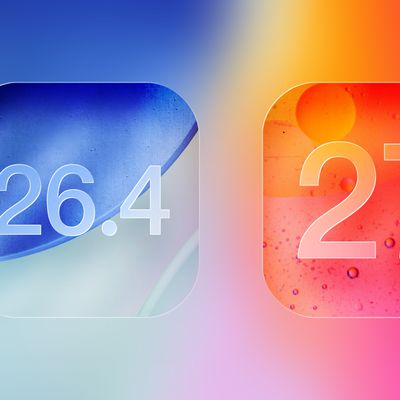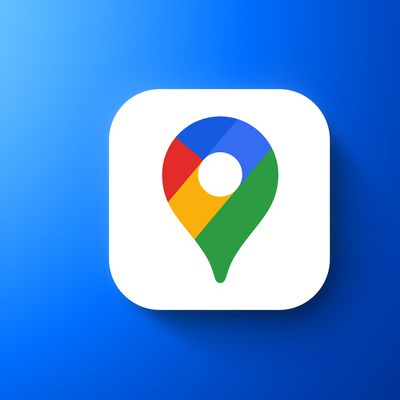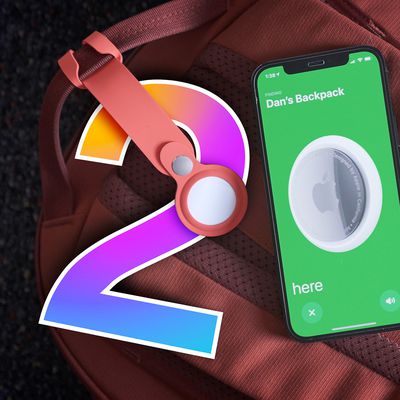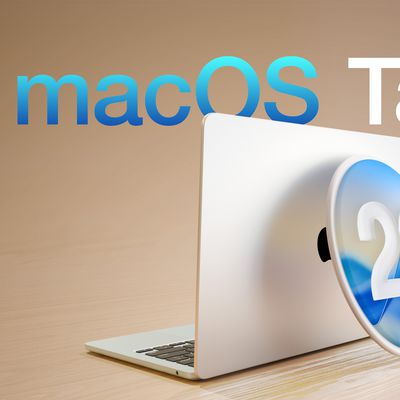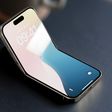Greg Joswiak, Apple's VP of iOS, iPad, and iPhone Product Marketing, recently sat down with Arianna Huffington on the Thrive Global Podcast to discuss the new Screen Time feature that Apple implemented for the iPhone 5s and later in iOS 12.
According to Joswiak, information is the "cornerstone" of what Apple is doing with Screen Time. The company's goal is to provide people with information about how they're using their apps so they can come to their own conclusions about whether they're happy with their usage statistics.
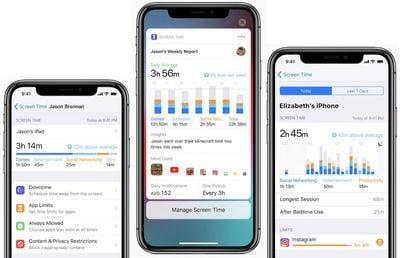
If you ask people how much they're using their devices, they can only guess. If you ask them how much they're using a particular app or category of app, they can only guess. I almost guarantee you their guesses are wrong. So what we wanted to do was provide people with the real information about how much they're using devices, apps, categories of apps, and how many notifications they're getting. These things are very measurable.
With Screen Time, built into iOS 12, users can get a complete overview on how much time is spent on each of their devices on a daily or weekly basis, with Apple offering up a weekly report. Joswiak says Apple wanted to make it as easy as possible, which is why iOS 12 asks people to opt in at sign up and delivers automatic reports each week.
Apple is hoping people will be "more cognizant" of what they're doing on their devices, using the Screen Time information to make better choices. Joswiak believes the vast majority of people will turn Screen Time on and will use the information to regulate behavior. That's how he uses Screen Time - awareness without imposing limits.
For me, I couldn't imagine leaving my home in the morning without my iPhone. I think like most people. I still found it fascinating to be able to open up the Screen Time app and see where I was spending my time. [...] That information was useful for me to regulate myself a to the behavior that I want. I didn't need limits, I just needed that information.
Even with children, Joswiak thinks parents will benefit most from being able to have an "intelligent conversation" about device usage with real data usage rather than implementing parental controls, but the controls are there for parents who need them.
Because of Apple's focus on user privacy, no data about Screen Time or app usage information is sent to Apple or any third party. Apple can tell who has Screen Time enabled and who doesn't for users who send diagnostic information to the company, but data is otherwise "available only to you."
Joswiak also highlighted iOS 12's features for cutting down on notifications, such as Instant Tuning, which lets you quickly turn off notifications for a particularly bothersome app without having to dig into the settings. Do Not Disturb has also been expanded in iOS 12 with new options that let it be turned on for an hour or a critical event.
Apple was not concerned with people using their devices less as a result of Screen Time, because it aims to provide the best usage experience, not the longest. "We don't need to make you use it every minute of every day," said Joswiak. "Our business model doesn't depend on how much you use your devices."
Screen Time was not developed because of the well-known shareholder's letter that called on Apple urging Apple to do more to protect children from smartphone addiction. Screen Time was conceptualized well over a year ago with the idea that Apple "wants to empower people with Apple."
"It's not a kids thing," explained Joswiak. "It's an everybody thing." Apple didn't set out to create a solution for parents to lock down their children's devices, it was created to give everyone information on how devices are being used. "Apple is not reactionary," said Joswiak. "We bring out features we think are going to help people."
Screen Time is available for all devices starting with the 2013 iPhone 5s, and bringing these kinds of new features is to millions of iOS users is something that only Apple can do, according to Joswiak. He says that soon, 80 percent of the user base will be using the latest version of iOS 12, which is "staggering."
Joswiak says that Apple has "lots of ideas" on how to take Screen Time further in the future. "We know there's lots more we'll want to do over time," he said.



